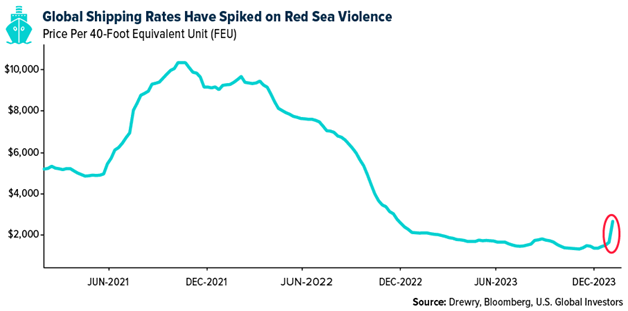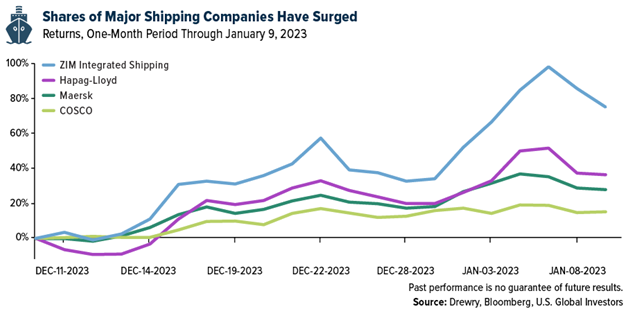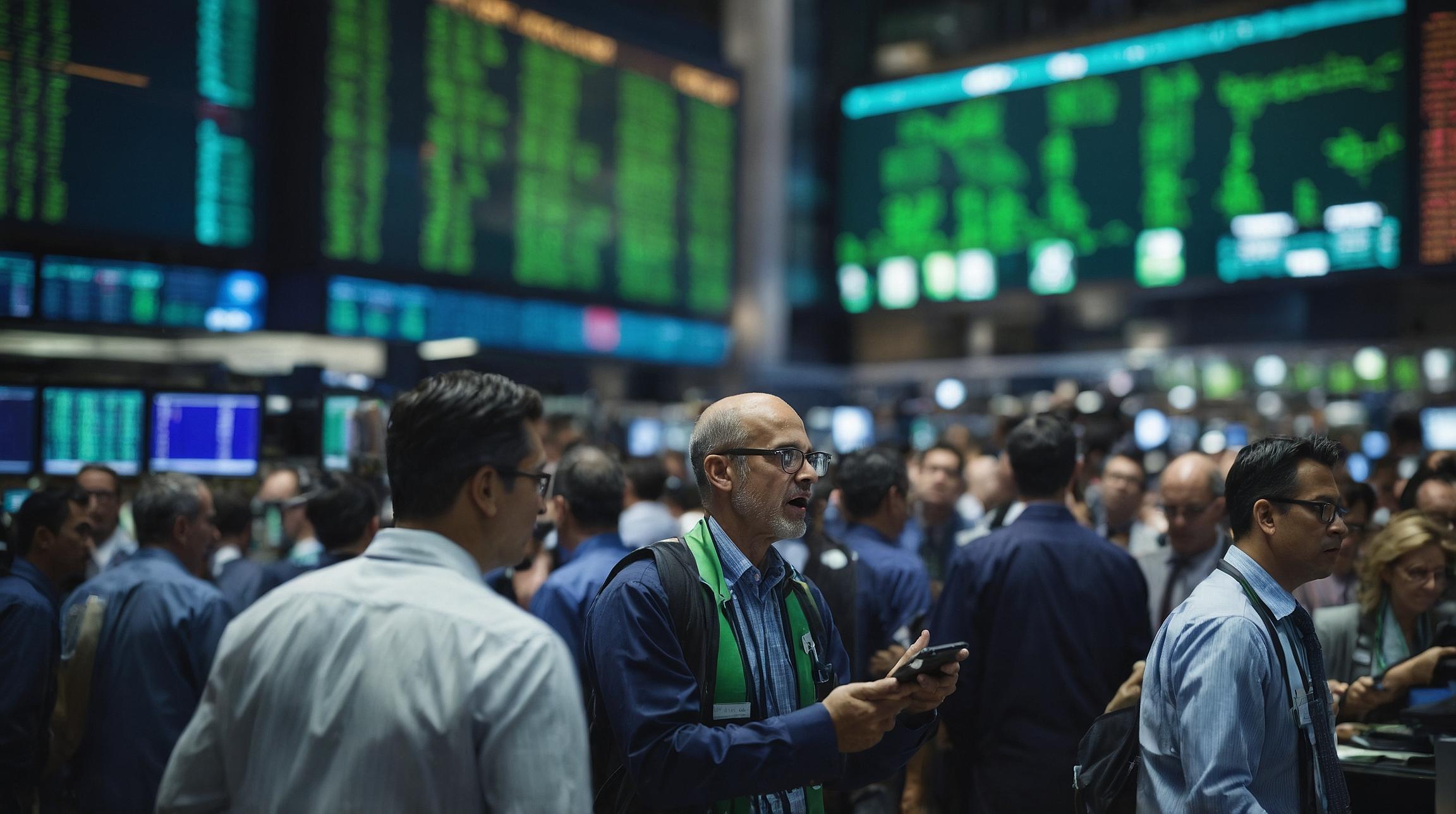Growing Tensions in Red Sea Create Shipping Industry Shift
The Red Sea, a crucial artery for international trade, is currently experiencing growing tensions that have sparked a
significant shift in the shipping industry. This shift offers a compelling case for global shipping stocks. In recent
months, Iran-backed Houthis have attacked tankers and cargo vessels sailing through the Red Sea, which is used by about
12% of global trade. These disruptions, related to the Israel-Hamas War, have prompted shippers to seek alternative,
though costlier, routes, including around Africa’s Cape of Good Hope.
Soaring Container Freight Rates Reflect Escalating Costs for Carriers
The detour around the Red Sea has had an immediate impact on container freight rates. Since tensions escalated, global
rates have nearly doubled, indicating the increased costs incurred by carriers and passed on to exporters. For example,
a company that paid about $1,400 to ship a 40-foot container at the end of November 2023 can now expect to pay more than
$2,600 to ship the same container. The rise in container freight rates has been significant and is directly related to
the growing tensions in the Red Sea.

Shipping Companies’ Stocks Surge Amidst Red Sea Standoff
The soaring container freight rates have had a positive impact on the shares of shipping companies. The one-month
period through January 9 saw Israel’s ZIM Integrated Shipping surge over 73%, making it the highest-performing company
in the Solactive Global Shipping Index. Other top performers included Hapag-Lloyd, which was up 37%, AP Moller-Maersk,
which was up 28%, and China’s Cosco Shipping, which had a 14% return. The increasing tensions in the Red Sea have
created a favorable environment for shipping companies, leading to a surge in their stock prices.

Economic Ripple Effects of Shipping Detours and Delays
The financial implications of the detours around the Red Sea are substantial. An extended round trip between Asia and
northern Europe is estimated to cost an additional $1 million in fuel per vessel. Furthermore, the rerouting of ships
adds significant delays to cargo shipments, inflating costs even further. The timing of these disruptions is
particularly sensitive as China’s Lunar New Year approaches, which traditionally sees an increase in shipping demand. In
fact, even before the Houthi attacks, Maersk had warned customers of “exorbitant” rates, “additional peak season
surcharges,” and a “shortage of empty containers” related to the Chinese holiday. The cost implications of the shipping
detours and delays are already visible, with rates for shipping goods from Asia to the Mediterranean and North
America’s East Coast rising sharply.
Investment Opportunities in a Shifting Shipping Landscape
The strategic significance of the Red Sea and Suez Canal cannot be overstated. These routes not only link Europe with
Asia’s major suppliers but also facilitate a substantial portion of the world’s oil and products transport. The diversion
of tanker cargoes further escalates the demand for shipping, thereby increasing the ton-mile requirement, a key measure
in the shipping industry. Bank of America has outlined a “doomsday scenario” in which both the Suez Canal and Panama
Canal, responsible for about 5% of global trade, become impassable. Such an event would have significant ramifications,
including boosting fleet demand between 1-2%. This standoff in the Red Sea presents a unique opportunity for investors
to consider global shipping stocks. The hostilities are reshaping the logistics of international trade, leading to
higher costs and extended transit times. The situation is likely to persist and potentially offer a lucrative method
for investors seeking to capitalize on these developments.
Disclaimer: Holdings may change daily. Holdings are reported as of the most recent quarter-end. The following securities mentioned in the article were held by one or more accounts managed by U.S. Global Investors as of 12/31/2023: AP Moller – Maersk A/S, COSCO SHIPPING Holdings Co. Ltd.
Analyst comment
The news can be evaluated as positive for the shipping industry. Growing tensions in the Red Sea have led to a significant shift in the shipping industry, with shippers seeking alternative routes. This has resulted in soaring container freight rates, leading to a surge in the shares of shipping companies. However, there are negative economic ripple effects, such as increased costs and delays. Overall, the market is likely to see continued changes in the shipping landscape and potential investment opportunities.













